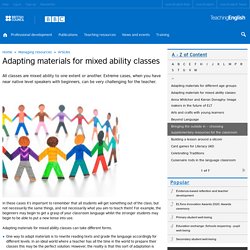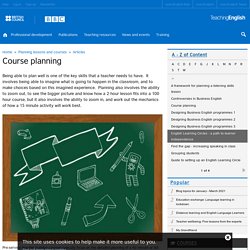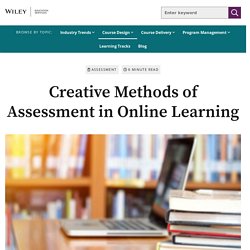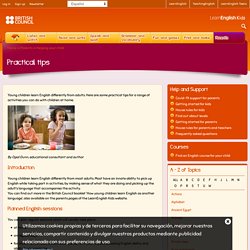

Conversation Starters World. 107 Good Icebreaker Questions to ask in 2020 [Updated] - IcebreakerIdeas. Icebreaker questions are some of the most popular icebreaker games.
![107 Good Icebreaker Questions to ask in 2020 [Updated] - IcebreakerIdeas](http://cdn.pearltrees.com/s/pic/th/icebreaker-icebreakerideas-231356589)
Icebreaker questions are of many different kinds and can be used for any age group. They work well to open an activity, introduce people and topics, and revive a flagging party or movie – in short in almost any and every circumstance and situation. We have divided out list of icebreaker questions into various categories to make locating the perfect set of questions easy. However, many of the questions and categories are interchangeable. You are sure to find a perfect fit of icebreaker questions for your party, meeting, or other occasion. “Have You Ever . . .?” Have you ever… Adapting materials for mixed ability classes.
In these cases it’s important to remember that all students will get something out of the class, but not necessarily the same things, and not necessarily what you aim to teach them!

For example, the beginners may begin to get a grasp of your classroom language whilst the stronger students may begin to be able to put a new tense into use. Adapting materials for mixed ability classes can take different forms. One way to adapt materials is to rewrite reading texts and grade the language accordingly for different levels. In an ideal world where a teacher has all the time in the world to prepare their classes this may be the perfect solution. However, the reality is that this sort of adaptation is extremely time consuming and not many teachers can actually go to this length to adapt materials for mixed level groups. These ideas are taken from a workshop I attended last year on mixed ability classes. Tips for good classroom management with mixed ability groups Further Reading:
Differentiated Instruction: Resource Roundup. Understanding Differentiated Instruction Summer DI Readings List: 150+ Seedlings for Growing Stronger Learners: Browse a bountiful reading list as you plan your garden of differentiated-instruction methods and strategies for the year. (Edutopia, 2015) Myth-Busting Differentiated Instruction: 3 Myths and 3 Truths: Get to the bottom of common misconceptions about differentiated instruction. Differentiation-Interests – Opening Paths. Differentiation | Planning | Readiness | Interests | Learning Preferences | Strategies Alignment Learner Voice and Choice is important if we want students to be engaged and have buy-in to their education.

Think about how you prefer to learn new ideas. Whether it’s in a classroom or self-directed, the experiences are better if we have some input. Pub F004 ELT Creativity FINAL v2 WEB. How to Write a Lesson Plan: 5 Secrets of Writing Fantastic Lesson Plans. Course planning. Pre-service teacher training courses typically focus on the detailed planning of a 40 minute or 60 minute lesson and don’t focus attention on how to go about planning a much longer scheme of work.

This is also an important area to consider though, because most teachers are involved in teaching courses, which may typically last anywhere between 30 and 120 hours. The aim of this article is to share some of the conclusions of a recent project I was part of, with the hope that it might enable other teachers to plan a little faster too! Why do we plan our lessons? I think that most teachers plan lessons in order to feel more confident in the class itself. If we know what we’re trying to achieve in the lesson, we are freed up to spend more time with the learners rather than worrying about our next step. TeachingEnglish. TeachingEnglish. How to Be a Better Online Teacher. Hether you’ve taught online a lot or a little, chances are you didn’t enjoy it as much as teaching in person.

Maybe you didn’t experience that fizz after a particularly invigorating face-to-face class. Creative Methods of Assessment in Online Learning - Center for Teaching and Learning. Typically when students and instructors hear the word assessment, they think of a long, arduous exam (or a long, repetitive night of grading!).

However, an assessment can be any task or activity that evaluates students’ progress toward your course’s learning outcomes. Traditional examples include papers, projects, reflective journals, group work, quizzes, and much more. Online learning has broadened the possibilities of assessment even further because it gives you, the instructor, a wide variety of tools that you can use to help students interact with material in new and exciting ways. Here are some strategies for thinking more creatively about assessments in your course, including examples from actual online courses. Capitalize on digital resources. The Art of Control. Executive function — our ability to remember and use what we know, defeat our unproductive impulses, and switch gears and adjust to new demands — is increasingly understood as a key element not just of learning but of lifelong success.
Researchers at the Center on the Developing Child at Harvard University describe executive function as an air traffic control system for the mind — helping us manage streams of information, revise plans, stay organized, filter out distractions, cope with stress, and make healthy decisions. Children learn these skills first from their parents, through reliable routines, meaningful and responsive interactions, and play that focuses attention and stirs the beginnings of self-control. But when home is not stable, or in situations of neglect or abuse, executive function skills may be impaired, or may not develop at all, limiting a child’s success in elementary school and later life. Imaginary Play Support it by: Storytelling “Children love to tell stories. How to help your child learn English with YouTube videos. Tracey Chapelton, education consultant and materials writer, has some advice for parents of young English learners, whose home language might not be English.
To learn a language we need a lot of exposure to it. YouTube is beneficial if you are not a fluent English speaker, and want a more fluent model of English for your child. Helped along by the visuals of their favourite cartoon, children can watch their favourite characters involved in adventures, while absorbing the language. Repetition is also important for language learning. It helps us remember important words and expressions. The more they watch, the more they will understand, eventually using the language themselves.
Practical tips. By Opal Dunn, educational consultant and author Introduction Young children learn English differently from most adults.

Most have an innate ability to pick up English while taking part in activities, by making sense of what they are doing and picking up the adult’s language that accompanies the activity. You can find out more in the British Council booklet ‘How young children learn English as another language’, also available on the parents pages of the LearnEnglish Kids website. Planned English sessions.